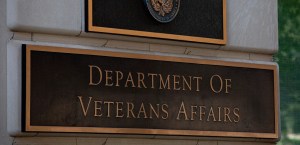VA building ‘360-degree’ digital record for vets
The Department of Veterans Affairs is searching for vendors to help build out an integrated digital record for veterans and a cloud-based system to manage that data across its three lines of business and beyond.
The VA wants to eventually create what it calls the Longitudinal Veteran Record, which “will provide a 360-degree view of the Veteran, including master data for Identity, Military Service History, and Demographic and Socioeconomic information,” a new request for information explains. At the heart of that new record is a “master data management” capability that “supplies a singular, authoritative set of Veteran information to all existing and future VA Business Support Lines of Business Systems,” the VA says.
“For VA, the 360-degree view of the Veteran is valuable because it facilitates effective engagement with that Veteran. It also increases operational efficiencies by breaking down silos of data and harmonizing the information across VA’s [lines of business],” the RFI states. “This is essential for VA personnel providing case management, such as those in the Call Centers who deal with more than 140 million calls annually. They need access to accurate, integrated, real-time information, enabling them to make informed decisions that address the needs of Veterans.”
While VA services are generally broken down into three areas — benefits, health care and cemetery administration — there are countless ways the data systems related to those categories interoperate with one another, as well as systems from other entities, like the Defense Department, corporate firms and other non-VA health practitioners.
The new record should encompass all the information necessary to serving veterans, including their identity, life events, enrollment and eligibility in programs, military service, health history, and more, the RFI says. Additionally, veterans will be able to personally update some areas of information in their record.
The modernized system looks to address the 21st century veterans “who grew up in a connected world and expect the same instant engagement and feedback from VA as they get from other service providers,” the RFI states. “These expectations will only increase in the future – and VA has to be ready to manage those expectations.”
VA wants vendors to propose a framework for the master data management system, as well as data quality and governance. For the eventual technology behind it, VA is pushing for cloud-based, open source, commercial off-the-shelf capabilities that allow for APIs and other services to be built on top.
The RFI comes after VA CIO LaVerne Council announced in a midyear report that her office was opening a Data Management Organization this year to “predict patient needs, deliver specific outcomes, and share information across VA to improve the Veteran experience.”
[Read more: VA launching big data management office]
Council has been bullish on the idea of integrating veterans’ data across the department’s lines of business, particularly in its ability to provide timely and effective health care. It’s a key element in her proposed digital health platform.
“Our vision for the future: VA will reach out to a Veteran, letting her know — based on an ongoing population health analysis — that she may be at an elevated risk for a particular illness,” the July report says.






